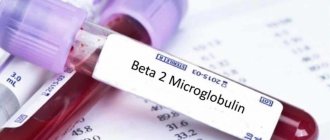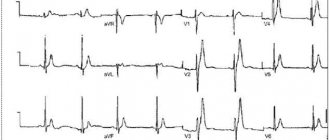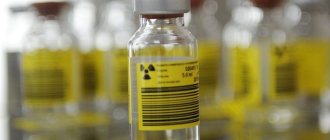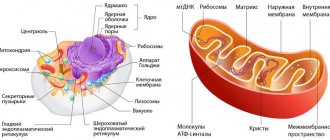Why are hormone tests done?
The content of the article
Almost all processes that occur in the human body are controlled to one degree or another by hormones - elements constantly produced by the secretory glands. All changes directly depend on the concentration of these substances in the body - maturation, growth, pregnancy, and so on. Even minor disruptions in the functioning of the secretory glands lead to a lack or excess of their formation, which results in pathological processes. Constancy of hormonal levels is impossible, since various hormonal elements and structures in the body are constantly being formed and destroyed.
It is to identify and eliminate such disorders that studies are carried out - on hormones. Despite the fairly high price of the tests,
It is necessary to carry out all studies recommended by the doctor.
find out what hormone tests
are needed in order to keep the intensity of substance formation under control in this article.
Indications for hormone tests
As a rule, a patient is prescribed a hormone test due to the presence of the following characteristic symptoms:
- increased blood pressure;
- cardiopalmus;
- weight gain;
- menstrual irregularities;
- mood swings;
- difficulties with conceiving and so on.
Most often, these tests are prescribed to patients when various endocrine pathologies are suspected; they are needed to clarify or confirm a preliminary diagnosis.
References
- Ilyasova, N.A., Burlev, V.A. Clinical and endocrine features of the menstrual cycle of women. Gynecology, 2015. - No. 6.
- Khasanov, A.A., Zhuravleva, V.I. Modern ideas about the regulation of menstrual function. PM, 2009. - No. 34.
- Pereira, H., Larson, R., Bemben, D. Menstrual Cycle Effects on Exercise-Induced Fatigability. Front Physiol., 2021. - Vol. 11. – 517 p.
- Monis, C., Tetrokalashvili, M. Menstrual Cycle Proliferative And Follicular Phase., 2021.
What tests are done for hormones?
To make or confirm a patient’s diagnosis, a doctor may need to perform the following hormonal tests:
- hormones
(
somatotropic,
adrenocorticotropic, TSH,
thyroid-stimulating,
follicle-stimulating, luteinizing hormone, prolactin); - thyroid hormones (calcitonin, T3, T4, antibodies);
- pancreatic hormones (insulin);
- adrenal hormones (cortisol, norepinephrine, adrenaline, aldosterone, progesterone,
ACTH); - sex hormones (estrogens
, that is, progesterone, estradiol, hCG, and testosterone).
- tumor markers (PSA, AFP, REA);
- adrenal hormones (progesterone,
cortisol, ACTH); - prenatal diagnosis.
When you need to take hormone tests and when not, the doctor decides.
Examination of women
Modern laboratory service capabilities allow you to examine a woman and determine the most favorable days for conceiving a child. To do this, the test results are analyzed in several areas at once: female and male sex hormones, pituitary and thyroid hormones. A gynecologist prescribes such an examination.
You will have to donate blood from a vein on the days of your monthly cycle. As a result, the doctor receives a complete “report” on the hormonal activity of the body (“hormonal mirror”). We can talk about the timing of ovulation and the clarity of the reproductive system.
Tests for basic hormones
The tests most often performed in St. Petersburg are listed below.
- Follicle-stimulating hormone (FSH)
in women is responsible for the formation of estrogen and the growth of follicles in the ovaries.
The critical level of FSH, which is reached in the middle of the cycle, ensures ovulation. In men, this substance is responsible for the concentration of testosterone in the blood, the maturation of sperm, and provides male strength. Deciphering this analysis
plays an important role in determining the causes of infertility. - Luteinizing hormone or LH
in men increases testosterone levels in the blood, providing conditions for sperm maturation.
In women, it is responsible for the secretion of estrogen, the formation of the corpus luteum, and ovulation. The ratio of FSH and LH in the body of patients, compliance with the norm
, is an important point in the examination for infertility. - Prolactin takes part in ovulation and activates lactation after childbirth. With a decreased or increased concentration of prolactin, the development of the follicle may stop, and as a result, the woman does not ovulate. Also, anabolic processes in the body depend on this substance (activates protein synthesis), it produces an immunomodulatory effect. In men, excess prolactin can lead to impotence, decreased libido, and infertility. how to do this test correctly
. - Progesterone is a prerequisite for the normal course of pregnancy, as well as for its occurrence.
- Testosterone is secreted in a woman’s body by the adrenal glands and ovaries; excess can cause early miscarriage and improper ovulation. A reduction in the level of testosterone in a man’s blood reduces the quality of sperm and causes erection problems. Proper preparation
for this study is important - Thyroid-stimulating hormone (TSH) is tested to rule out or confirm a patient's thyroid dysfunction. Detection of antibodies to this substance makes it possible to predict malfunctions of the thyroid gland.
Interpretation of test results
can only be carried out by a doctor, since it is difficult to understand without professional knowledge. The answer to the question of how many tests are done depends on the specific analysis.
Preparing for hormone tests
Assessing a patient’s hormonal background is an important point in diagnosing many diseases. What hormone tests are needed in a particular case is determined by the doctor. The patient is only required to comply with the rules for preparing for research, which are given below.
In order to get a reliable picture as a result of hormonal tests, the patient must take into account the basic rules for preparing for them.
- For a few days, heavy physical activity is excluded, situations that cause nervous tension are prohibited.
- Two days before the study you need to give up alcoholic beverages.
- Two hours before taking biological material, you should stop smoking.
- The analysis is carried out in a state of absolute calm, therefore, you need to sit and relax 15 minutes before it is carried out.
- Distortion of the results is possible if the patient is taking medications; you should definitely discuss this situation with your doctor.
Some types of hormonal tests
It is advisable to carry out only on specific days of the cycle (if we are talking about a woman), the doctor will definitely warn you about this.
A man can take hormone tests
any day.
To obtain a correct interpretation of the results of hormone tests, strict adherence to the following rules is necessary.
- It is advisable to donate blood in the morning (8-11). The analysis must be carried out on an empty stomach, which means that at least 8 hours must pass between the collection of biological material from the patient and the last meal. At the same time, it is not prohibited to consume water in any quantity; it does not in any way affect the study on the concentration of hormones.
- On the eve of the study, it is recommended to limit yourself to a light dinner; it is advisable to avoid fatty foods in order to avoid distorting the results.
- Approximately two days before the hormone test, doctors advise you to stop drinking alcohol. Excessive physical activity is also prohibited.
- The use of medications is not recommended. In some cases, you can take medications after first discussing this with your doctor. It is advisable to conduct the study before drug treatment or two weeks after its cessation.
- About two hours before the test is due, you need to stop smoking cigarettes. You should also not drink coffee, tea, juice, or sparkling water. There should be no physical stress (climbing stairs too quickly, running), as well as emotional arousal. It is advisable to relax and rest a little 15 minutes before the analysis.
- Donating blood after an instrumental examination, various physiotherapeutic procedures, ultrasound or X-ray examination, massage and other medical procedures is not recommended; you need to wait a certain time.
- If laboratory parameters are checked over time, it is preferable to carry out repeated studies under the same conditions, that is, at the same time of day, in the same laboratory, and so on.
- In some cases, laboratory analysis of hormones
must be carried out strictly on certain days of the cycle.
The attending physician will warn the patient about this. As a rule, we are talking about tests for hormones of the reproductive system.
In order for anal analysis to be carried out on the main hormones
turned out to be as informative as possible, it is very important to prepare for them correctly.
How to interpret hormone tests correctly
The study of hormonal levels is necessary for the effective detection of many diseases: thyroid diseases, infertility, and so on. In addition, they are carried out to confirm the presumptive diagnosis. You can try to independently decipher a blood test for hormones
, however, it is worth leaving the final diagnosis to a specialist.
When conducting most studies and determining the norm and deviations from it, factors such as the age and gender of the patient should be kept in mind. When assessing the functions of sex hormones in female patients, it is necessary to take into account the specific phase of the menstrual cycle. Therefore, it is advisable to take blood for hormones from women of reproductive age only on certain days of the cycle.
Pregnancy also seriously changes hormonal levels. At different stages of expecting a baby, the levels of hormones in the body become different. For example, in the first trimester, more than a third of pregnant women have a decrease in thyroid-stimulating hormone.
In the first trimester, the level of human chorionic gonadotropin jumps, and so on.
Since hormones have a systemic effect, their regulation is an unusually complex process; indicators are often affected by concomitant diseases (chronic and acute) and the use of medications. And finally, it is important to take into account such aspects as the ecology of the patient’s specific area of residence and the general condition of his body. Therefore, the interpretation of the results should be left to the doctor.
When should you not panic?
We warn women that they should not panic if deviations are noticed only once. There are enough temporary reasons for disruptions in our lives. The doctor will prescribe 2-3 repeat tests, and only then will he talk about the need for treatment.
Of course, this will take time. After all, each test must be taken again on certain days of the new menstrual cycle.
The failure can be eliminated by taking a course of hormonal therapy, so a pathological condition may not follow.
How to decipher a hormone test yourself
Below are the principles of an approximate decoding of tests for the main hormones.
- Testosterone
is produced in the body of women and men, for the latter it serves as the main sex
hormone
. In a man's blood, the normal level of testosterone is 2-10 ng/ml. In women, this parameter is normally in the range of 0.2-1 ng/ml. In men, excess testosterone levels may indicate early puberty and testicular tumors. A reduction in this indicator negatively affects the quality of sperm and may be a sign of dangerous liver or kidney diseases. If the concentration of this substance in the female body exceeds the norm, this can lead to a miscarriage. - Estrogens belong to the female sex hormones: estradiol, progesterone. These substances are responsible for the menstrual cycle, fertilization, guarantee the preservation of the fetus and the development of the egg. Their content in the body is determined by the phase of the cycle. Postmenopause - 51-133 pM/l, luteal phase - 439-570 pM/l, follicular phase - 198-284 pM/l - these are the normal test results for estradiol.
For progesterone, the following indicators are normal: postemnopause - 1-1.8 nM/l, luteal phase - 23-30 nM/l, follicular phase - 1-2.2 nM/l. If the levels of these substances exceed the norm, this may indicate a tumor of the adrenal cortex, ovaries, pregnancy, or cirrhosis of the liver. A contraction may indicate sclerosis, underdevelopment of the ovaries, the threat of abortion, or lack of ovulation. - Follicle-stimulating hormone
is produced by the pituitary gland and activates the development of follicles in women and seminiferous tubules in men. For the female body, the norm is 4-150 units/l (the phase of the menstrual cycle plays a role), for the male body – 2-2\10 units/l. The concentration in the body of this substance increases when sperm production fails, during menopause, or when ovarian function decreases. FGS levels also fall under the influence of hormonal contraceptives, with prostate cancer, and during pregnancy.
- LH or luteinizing hormone activates the production of sex hormones in women and men. Normally, for women the figure is 0.61-94 units/l (the figure depends on the phase of the cycle), for men – 2-9 units/l. Taking estrogen in large doses can reduce the indicators, while malfunction of the gonads can increase it.
- Prolactin in a woman’s body controls the development of the mammary glands, and after the birth of a child, the formation of breast milk. Its normal value during pregnancy is 500-10,000 mIU/l. Depending on the stage, the indicator gradually increases. This hormone is also present in men - 58-475 mIU/l is considered normal.
- of thyroid-stimulating hormone
in the body is assessed to determine the condition of the thyroid gland. An increase in indicators is a signal of insufficient thyroid function. Their reduction indicates an oversupply. A value in the range of 0.2-3.2 MIU/l is considered normal.
T4 (total thyroxine)
The concentration of T4 in the blood is higher than the concentration of T3. This hormone, by increasing the basal metabolic rate, increases heat production and oxygen consumption by all tissues of the body, with the exception of the tissues of the brain, spleen and testicles. Levels of the hormone in men and women normally remain relatively constant throughout life. However, in some areas, and Moscow is almost in first place, a decrease in the activity of the thyroid gland is often observed, which can lead to serious deviations in one’s own health and the health of the unborn child.
Where are hormone tests done?
Diana Medical Center offers its patients a full range of hormone tests. The drug and hardware base of our laboratory allows us to quickly and reliably determine the concentration of hormones in blood, urine and other biological fluids. In addition, the results are deciphered by our specialists, who, if necessary, will develop an optimal scheme for correcting hormonal levels.
Get tested for hormones
You can skip the line for adults, children, and pregnant women at a convenient time by making an appointment on any day - we work seven days a week. You can find out the cost of the listed studies on our website in the price list of services.
Treatment of hormonal imbalance
Serious deviations of test results from normal values indicate a hormonal imbalance that requires drug treatment. Treatment is aimed at eliminating the cause of hormonal imbalance and correcting the level of hormone production.
As a rule, drugs containing hormones are prescribed as the main drug. Drugs are selected by a doctor only after a thorough examination - laboratory blood tests and additional diagnostic procedures if necessary.
In particularly difficult cases, treatment therapy can last several months. If a hormonal disorder is identified at an early stage, it is easier to correct.











